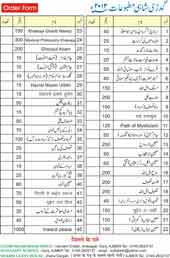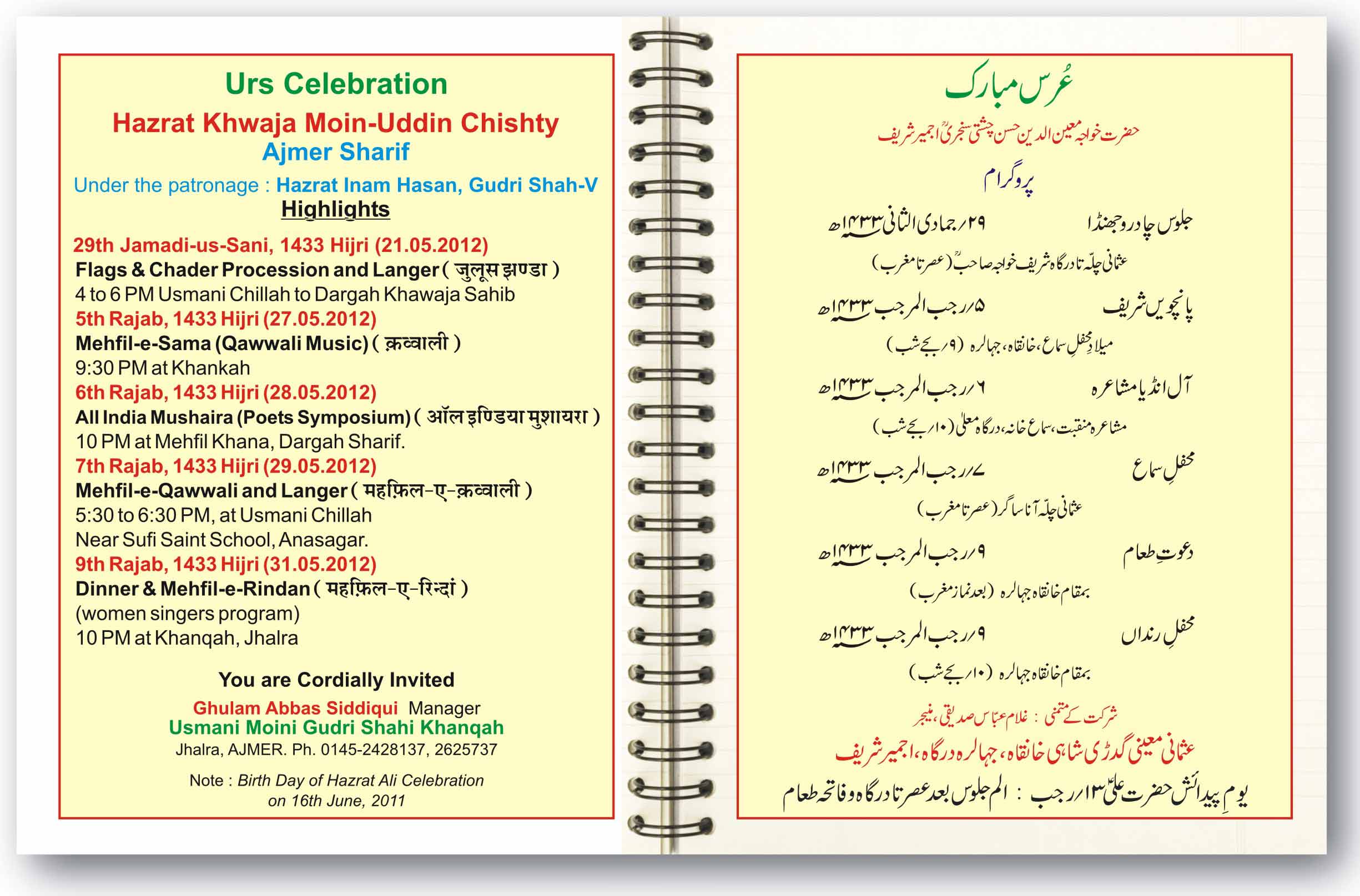|
he complex
The complex of the Dargah Sharief (Holy Shrine) is spread over a large area in the heart of the old city of Ajmer. About 4 Kms from the Railway Station and about 5 Kms from the Bus Terminal, the Complex is easily and quickly reached either by hiring an auto rickshaw or a brisk 15-minute walk. The complex houses many buildings besides the Tomb, which were constructed over a period of time by various Kings and devotees.
The buildings
 The Tomb The Tomb
Khwaja Husain of Nagore advised his son, who thought of accepting an offering, made by Sultan Ghiyas Uddin to spend the amount on the construction of buildings over the grave of Hazrat Khwaja Sahib and of his own ancestor Sufi Hamid Uddin of Nagore. Likewise, the tomb was constructed, and the dome over the grave of Hazrat Khwaja Sahib was raised up. The white dome is one of its kinds in India.
The Begami Dala
This Dalan was constructed by Princess Jahan Ara Begam, daughter of Emperor Shah-Jahan in 1053 AH / 1643 AD.
The Tenement of Bibi Hafiz Jamal
In this tenement, situated very close to the tomb of Hazrat Khwaja Sahib, is laid to her eternal rest the daughter of Khwaja Sahib. The two small graves are of her two sons who dies in infancy.
Ahata-e-Noor
It is situated towards the southwest of the tomb. It is of marble. It is known as Ahata-e-Noor or the compound of Light.
The Arcot Dalan
The then prince of Arcot built this Dalan, or small hall, in the year 1207 AH.
The Mehfil Khana
It was built in year 1309 AH. The Mehfil Khana, or the place for gatherings, is where the Mehfil - e - sama (musical concert) takes place during the urs celebrations and on other special occasions.
The Big Cauldron
To mark his expression of devotion of Khwaja Sahib, Emperor Akbar presented the Big Cauldron in the year 974 AH, after his conquest of Chittor.
The Small Cauldron
Emperor Jahangir presented the Small Cauldron in the year 1022 AH. The cauldrons are used for preparing special food for devotees.
The Chillah of Baba Farid
This is the place, where Baba Farid Uddin Gange-e-Shakar passed his days in contemplation and seclusion. The gate of the Chillah remains close. But on the 5th Muharram each year the gate is opened.
Nizam Gate
It was built by H.E.H. The Nizam of Hyderabad. Its construction commenced in the year 1912 AD and was completed in 1915 A.D.
Kalma Darwaza
Sultan Mehmud Khilji of Malwa built this gate in 859 AH.
Akbari Mosque
Emperor Akbar built this mosque in 977 AH, as a mark of thankfulness to Hazrat Khwaja Sahib, on the occasion of the birth of Prince Salim (Emperor Jahangir). It is known as Akbari Masjid (Mosque of Akbar).
Shah Jahani Mosque
Emperor Shah Jahan in 1047 A.H built this mosque of white marble. It is known as Shah Jahani Masjid or the Mosque of Shah Jahan.
The Sandal Khana Mosque
Sultan Ahmad Khilji, better known as Sultan Mando, built this Mosque in the year 859 AH.
Aulia Mosque
It is situated close to Sandal Khana Mosque.
The ceremonies
Every day, several thousand devotees throng to the tomb of Khwaja Sahib to seek his blessings and derive solace and comfort under the shelter of his love. As a mark of respect to the saint, and to invoke the blessings of Hazrat Khwaja Moinuddin Hasan Chishti, various ceremonies are held everyday at the shrine. The main ceremonies that are held everyday include
Khidmat
Khidmat or service, is performed twice daily by the Khadims where the in the morning the Gates to the holy shrine are opened after azaan, the call to prayers, and offerings of fresh flowers are made after the holy wash of the mazar. Later in the evening, recitation of fateha takes place and sandalwood paste is applied to the mazar.
Roshnee
Roshnee or lighting of candles and lamps takes place in the evenings with drum beating and recitation of Persian verses.
Karka
Karka is the closing ceremony of the gates to the shrine and takes place after an hour of Isha prayer, the prayer after sunset.
Langar
Daily free distribution of food takes place where a special porridge meal is cooked. It is said that the porridge is cooked in a manner similar to that which was used by Khwaja Sahib himself. The langar takes place after the Isha prayers.
Sama (Qawwali)
Every day, renditions of devotional songs in the Praise of the Almighty and his Prophet and Saints take place at the court of Khwaja Sahib, by the Qawwals, or the traditional musicians.
Milad & Quran Recital
Recitation of the Holy Quran takes place every day at the mosques within the complex.
|




















































